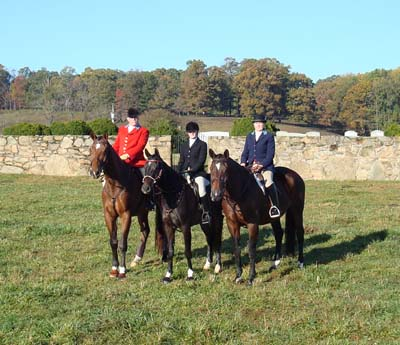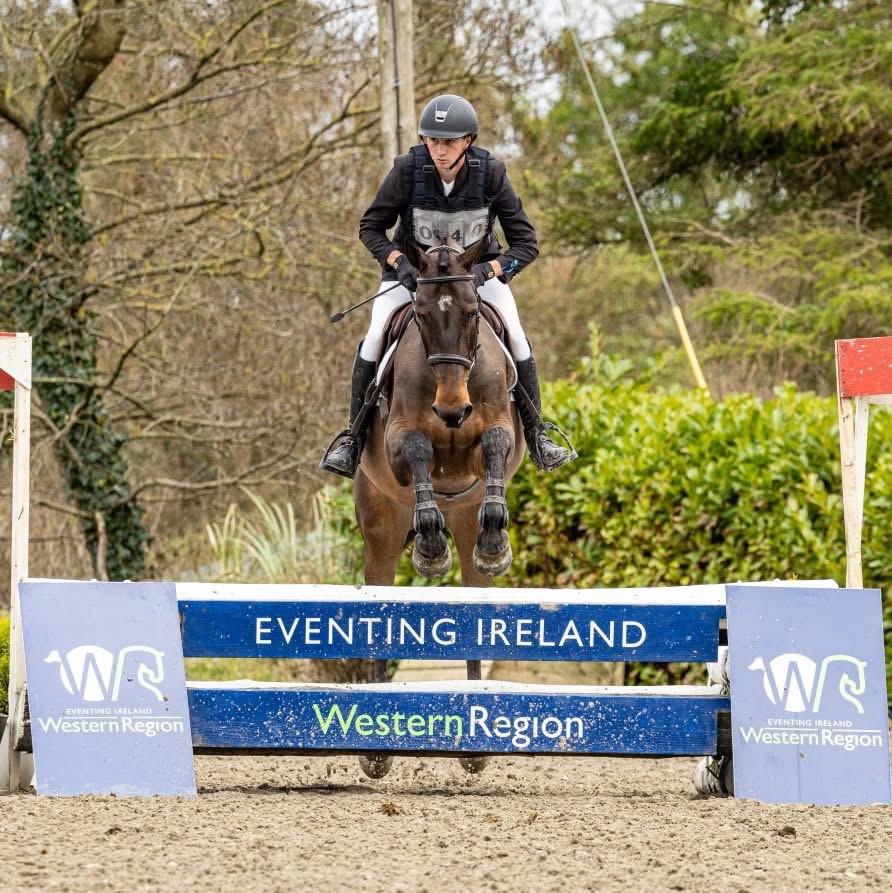![ZenaCCI01[1].jpg](https://assets.eventingnation.com/eventingnation.com/images/home/ZenaCCI01%5B1%5D.jpg)
Nicolette & Ganymede at the Hagyard Midsouth Three-Day Event CCI* in Oct. 2011
Photo by Maggie Dupler, used with permission
Foxhunters and eventers have plenty in common, most notably a preoccupation with mad dashes across the countryside. However, while crossover between the two sports certainly happens, it’s hardly en masse. Eventers worry that their horse might slip on an acorn and blow a suspensory; foxhunters worry they might have to put away their flasks and learn dressage.
But hasty generalizations (sorry, I couldn’t resist) only go so far in explaining why many riders feel pressured to choose a side. For one, our event season now wraps clear around the calendar–the “off season” no longer exists. Additionally, not every event horse can moonlight as a hunt horse and vice-versa. And finally, let’s face it, hunting across natural terrain is inherently less predictable, and by extension less safe, than galloping on a manicured, aerated cross-country course.
Some eventers, however, have found a way to incorporate both sports into their training program. Last year I had the pleasure of hunting alongside one family that bears dual citizenship. The Merle-Smiths of Louisa, Va., have been in the business of producing quality horses for the hunt field and beyond for over 30 years.
Grosvenor Merle-Smith is the huntsman of the family, with a resume that includes having been Master of Golden Vale Hunt in Ireland, Bull Run Hunt in Va. and, presently, Tennessee Valley Hunt. His wife Rosemarie has competed in A-rated hunters and jumpers, evented through Preliminary and is a joint-Master at Tennessee Valley. Daughter Nicolette, age 24, assists with her parent’s breeding, training and sales operation while juggling whipping-in and eventing at the one-star level.
“My parents are what keep me going,” Nicolette says. “I thought a little while back that I wanted to go off on my own and do this, but the combination of my mom, my dad and I… we have this trifecta. I really like the trio we’ve got going to make horses and sell them. We’re always asking each other for advice.”

A day at the hunt: Grosvenor, Nicolette and Rosemarie Merle-Smith.
While Grosvenor sticks close to the hunting (“My dad doesn’t ride unless he’s hunting–he’s mostly a hound guy,” Nicolette says), Nicolette enjoys eventing and is perhaps the most old-fashioned young person participating in the sport. Having grown up in the hunt field, she values a horse that’s as diehard as she is.
“The hunting has made her very brave,” her mother says. “You can put any cross-country course in front of her, she just doesn’t care.”
Nicolette agrees that having the opportunity to hunt–stateside as well as in Ireland and Australia–has been a great teacher. “There’s nothing that can prepare you for cross-country like foxhunting,” she says. “There are so many variables you have to deal with without somebody right there saying ‘Sit up’ or ‘Lean back’ or ‘Slip your reins.’ You have to figure it out yourself.”
It’s not uncommon for Nicolette to have two or three horses running at an event, but her favorite mount is Ganymede, a 14.2-hh Connemara pony mare. Most recently they tackled the one-star track at the Hagyard Midsouth Three-day Event.
“She’s special for sure,” Nicolette says. “She doesn’t realize she’s a pony. I have to whoa her in the triple combinations.”
Nicolette describes Ganymede as a cross-country machine but says the spitfire mare hasn’t always been as gutsy as she is today. The first time Nicolette pointed Ganymede at a cross-country jump, she stopped 30 feet away, spun and bolted in the opposite direction. Nicolette solved the problem by introducing Ganymede to the hunt, where she quickly gained confidence following the field over jumps.
“Taking the young horses hunting makes them brave and more aware of where they’re going,” Rosemarie explains. “It’s also very good for teaching balance.”
The Merle-Smiths incorporate trail-riding on the farm into their babies’ early education, then take them out cubbing when they’re coming 4-year-olds to see if they can handle hunting. Not all horses are mentally or physically cut out for the hunt field, Rosemarie says, but those who are can reap the benefits of hunting–including the development of that elusive “fifth leg”–no matter what their niche in life.
As for the question of risk, the Merle-Smiths agree that accident-prone horses might find the hunt field treacherous. “Some horses can hurt themselves in a padded stall,” Rosemarie points out. But for the handy ones, hunting may actually lead to longer careers and fewer soundness problems.
The reasons for this are multifold. First, the sport isn’t all about galloping willy-nilly through the woods; a big chunk of the average hunt is spent walking, trotting or even standing around as the hounds work up a scent. In eventing that’s what we call long, slow distance work, the basis for a solid conditioning program. And fit horses, like any athletes, are less likely to injure themselves.
Rosemarie also subscribes to the theory that conditioning over varied terrain, as opposed to, say, the perimeter of a flat pasture, goes a long way toward toughening up legs. Consider a marathon runner who trains primarily on a track or the streets, and then decides to go on a trail run. He is more likely to trip or roll an ankle than a regular trail runner because his legs and feet aren’t accustomed to making adjustments for irregularities in the ground. Hunting a horse over rugged terrain can help develop stability and a quickness of foot that could prove invaluable in the eventing arena.
“I heard David O’Connor comment once that there’s something eventers are missing that they could learn from foxhunters,” Rosemarie says. “These hunt horses, they basically go run a one-star twice a week, and nobody is wrapping their legs afterwards or keeping then locked in a stall, and yet they stay sound season after season. You see so many over-managed event horses, and it seems like the more you protect them the more they get hurt.”
Nicolette says she sees no need to compartmentalize her riding life. She’ll continue hunting her family’s horses for another couple months, then head to Ocala to catch some events and hopefully get some face-time with the master pony jockey, Karen O’Connor.
But if there was a gun to her head, which would she choose? “Hunting,” Nicolette says without hesitation. “I’m a foxhunter at heart. But I’m blessed to be able to do both.”



















